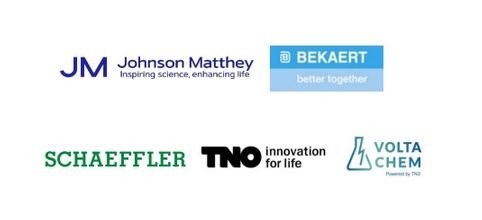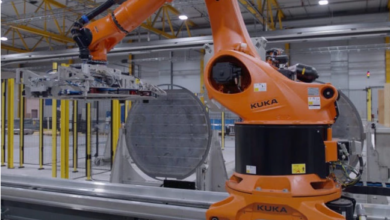Johnson Matthey, Bekaert, TNO and Schaeffler partner for hydrogen production
This international consortium of Schaeffler, Bekaert, Johnson Matthey and TNO will jointly work on the shared research.

Johnson Matthey and Schaeffler have partnered with Bekaert and TNO to develop cells to be used within electrolysis with the components optimised to work together for a step-change in efficiency.
It brings together each company’s leading individual capabilities to drive forward next-generation technologies to reduce the levelized cost of hydrogen and improve component efficiency. The shared research programme will run over the next three years.
Renewable hydrogen will play a role in all net-zero scenarios and is critical in decarbonising hard-to-abate sectors. Electrolysis is the technology used to produce renewable hydrogen with water and power from renewables and is, therefore, a key enabling technology for zero-emission energy.
The consortium’s goal is to accelerate Proton Exchange Membrane (PEM) technology development by optimising the most important components of the electrolyser stack. This will ultimately support the development of the next generation of PEM electrolysers, enabling lower electricity consumption, cheaper hydrogen production and a smaller footprint. The team will also investigate more efficient use of scarce critical elements and components which offer increased efficiency over today’s electrolysers.
The partners will collaborate in a shared research programme that will span three years and lay the foundation for a highly efficient, durable and lower cost generation of electrolysers. This is part of the VoltaChem program, a business-driven Shared Innovation Program that supports the chemical industry, the energy sector, and equipment suppliers & licensors to move towards a climate-neutral future.
This international consortium of Schaeffler, Bekaert, Johnson Matthey and TNO will jointly work on the shared research. To further accelerate, the research programme is open to new participants.
Richard Braal, director at TNO, said, “TNO has a strong dedication to tackle global warming. We need to speed-up, accelerate innovation and the deployment of new technology. In this Next Gen electrolysis Shared Research Program we make this possible by innovating together with the international leading industry. TNO really act as a catalyst bringing in-depth knowledge on electrolyser technology and skills in orchestrating innovation as an independent research institute.
Ralph Calmes, MD, Hydrogen Technologies, Johnson Matthey, said, “The energy transition is gathering pace and governments are making ambitious targets to reach ‘net zero’ emissions. Green hydrogen is a truly carbon neutral solution and here we have the opportunity to drive the innovation which will make hydrogen more affordable and reliable. The collaboration envisaged by this consortium aims to accelerate not just in the area where JM is focused, but of PEM technology as a whole.”
Inge Schildermans – VP Bekaert Fiber Technologies, added, “Bekaert continues to develop green and sustainable solutions for our customers thanks to our focus on components with increased performance for the electrolysis needs of the future. We work in close alignment with our innovation partners of the Supercell project. We are committed to innovate and scale up our production footprint to GW capacity.”
Martijn de Graaff, Program director VoltaChem, commented, “Together with our business community, we aim for accelerated innovation and implementation in Power-2-X in order to reduce the CO2 footprint of chemicals production. It’s great to see that VoltaChem members are taking the next step in their ambition together to achieve unparalleled technical performance in green hydrogen production and secure a unique position in the sustainability market. We expect that this will only be the beginning in the development of a next generation high-tech sustainable process industry.”
Bernd Hetterscheidt, SVP at Schaeffler, said, “We are very proud that we are able to contribute to the competitive production of green hydrogen and to support this team of strong international business partners with our experience and developments in the field of PEM water electrolysis. Enabling and accelerating the energy transition is one of the core objectives of our strategy at Schaeffler and is an essential part of our Roadmap 2025, which comprises a fast ramp-up of a highly competitive, scalable stack production process. We strongly believe, that participating in such promising projects as the Next Gen electrolysis Shared Research Program with global leading partners is the right way to drive this technology forward.”
